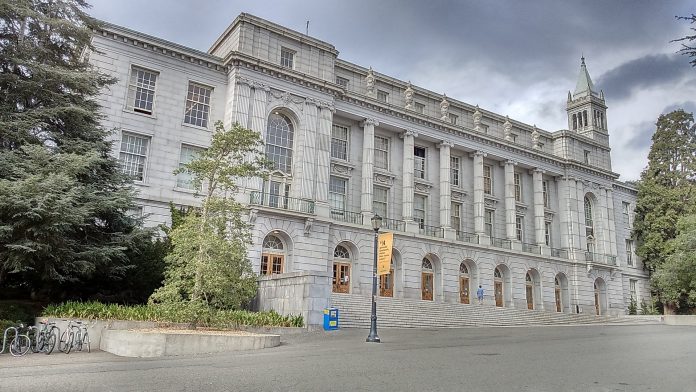By Elaine Gunthorpe
A University of California, Berkeley (UC Berkeley) student organization recently hosted a rally to ban cars in the name of climate justice.
The car-free Telegraph Avenue rally, organized by Telegraph for People (TFP), belongs to an ongoing effort to help Berkeley “put its ambitious climate goals first.”
TFP members told Campus Reform that its envisioned plan–which would remove cars from Berkeley’s iconic Telegraph Avenue while creating a dedicated bus lane–will have environmental, economic, and safety benefits.
“The much more important reasons for us are all of the community benefits, such as safer streets and thriving businesses,” according to TFP President Rebecca Mirvish.
Grayson Savoie, the TFP External Affairs Director, similarly told Campus Reform “that a pedestrianized space would not only improve the comfort and accessibility for cyclists, pedestrians, and transit riders, but also allow merchants to expand the footprint of their businesses and connect with potential customers.”
Climate justice is still a key component of TFP’s message to students, according to its members and an Instagram post announcing its founding in 2021. The post asked whether the Berkeley community was “[t]ired of paper straw environmentalism.”
“We know we’re not going to solve climate change with just this one rally, but this is a small step in the right direction,” Mirvish told Campus Reform, referencing the recent car-free rally. “So we added ‘climate justice’ to our flyer because we know it’s a cause that many Berkeley students and other community members are excited about.”
Adam Ratliff with UC Berkeley’s Student Affairs Communications told Campus Reform that “Registered Student Organizations are legally independent of the campus.”
“The campus has not taken a position on proposals for Telegraph Avenue,” he continued.
TFP’s plan lists five benefits, including to save the climate, according to its website.
“Students have a right to breathe clean air and they have the right to inherit an earth that is not on fire,” the plan’s description says. “Climate change is here, and cars cause it. Berkeley’s revolutionary Telegraph Avenue must embrace the future and be on the front lines of fighting climate change.”
City officials listened to TFP’s plan. TFP members shared ideas with the Transportation Commission shortly before the organization’s founding. In February 2022, the Berkeley City Council passed a recommendation “to convert four blocks of Telegraph into a pedestrian plaza,” according to The New York Times.
The next month, TFP hosted a protest “blocking traffic and demonstrating what banning cars on the street could look like,” according to The Daily Californian.
A car-free Telegraph Avenue, however, may be years away because Berkeley cannot afford the project. The recommendation, Berkeleyside reported in December 2022, “exceeded Berkeley’s budget for the project, and construction costs have soared over the past year.”
“Unfortunately, they don’t have any funding set aside for this project yet, so we need to maintain the political pressure until they do,” Mirvish told Campus Reform.
Savoie called TFP’s movement one that “extends beyond this one street.”
“We are not naïve to think that removing cars from [three] blocks is radical nor will lead to the massive emission cuts needed to save the planet from the impending societal collapse that the scientific community is warning us of,” he told Campus Reform.
“However, we believe small actions such as pedestrianizing Telegraph can begin to flip the status quo that continues to prioritize cars over people.”
Campus Reform contacted all relevant parties listed for comment and will update this article accordingly.
Elaine Gunthorpe is a rising junior at Christendom College. She is pursuing a major in Political Science & Economics and a minor in Philosophy. As an active member in her community, Elaine is involved in a number of organizations such as College Republicans, Network of Enlightened Women, and Shield of Roses.
Originally published by Campus Reform. Republished with permission.
To read more about environmental activists, click here, here, and here.


























